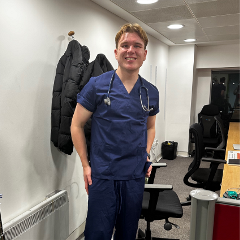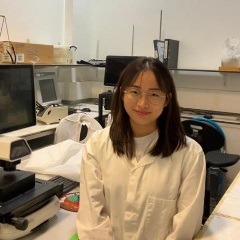
Glioblastoma multiforme (GBM) remains one of the most challenging cancers to treat, largely because of challenges imposed by the blood brain barrier (BBB). The BBB makes it difficult for systemically administered drugs to reach the tumour site, resulting in poor bioavailabiltiy and off-target effects. I chose this project as I am excited by the prospect of locally delivering drugs to the tumour site using a stimuli-responsive material cargo. This ‘material cargo’, the conductive elastomer, can be implanted into the tumour site and the release of chemotherapeutics into the tumour can be controlled via voltage application. This therefore allows for the temporal and spatial control of drug release, thus increasing the bioavailability of drugs at the tumour site as well as limiting off-target effects.
It is hoped that this treatment approach will represent a novel option for GBM patients and will hopefully improving their quality of life by increasing survival time and reducing treatment burden by limiting off-target effects.
I have played in a football game against Usain Bolt

Metastatic breast cancer is currently incurable due to the near inevitable emergence of resistant cancer cells during the course of treatment. As an aspiring oncologist, I am interested in how competitive interactions between cancerous and healthy cells shape tumour growth and resistance. Using advanced cell labelling and tracking techniques as well as cutting-edge microscopy, I aim to catch malignant cells in the act of killing their peaceful neighbours. Hopefully, insights into this process will expose cancer’s set of tricks and reveal potential vulnerabilities that can be exploited to drive complete responses to treatment in more women.
My Surname is misspelled in my passport because one of my ancestors messed it up.

I am developing a microfluidic chip to study how extracellular matrix components affect tumour cell behaviour during metastatic colonisation in the lung. This multidisciplinary project utilises techniques from microfluidic device development and proteomics, which allows me to learn from both engineers and biologists. Identifying specific proteins that contribute to metastatic disease progression will hopefully pave the way for improvements in personalized treatment plans and targeted therapy.
I play the piano and guitar.